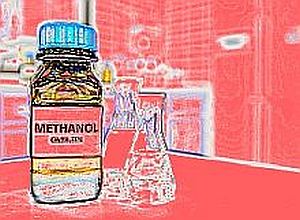An Australian study found that COVID-19 related rumours were linked to thousands of hospitalisations and hundreds of deaths. For example, a myth that consumption of highly-concentrated alcohol could kill the coronavirus has been linked with more than 5,900 hospitalisations, 800 deaths and 60 cases of blindness due to methanol poisoning (which can occur when people drink home-brewed or illegally manufactured alcohol).
Many of these cases were in Iran where alcoholic beverages are illegal. In India, 12 people, including five children, got sick after drinking liquor made from the toxic seed Datura, believing it to be a cure for COVID-19, according to researchers at the School of Public Health and Community Medicine, University of New South Wales.
BBC News reports that the World Health Organisation (WHO) has previously said that the "infodemic" surrounding COVID-19 spread just as quickly as the virus itself, with conspiracy theories, rumours and cultural stigma all contributing to deaths and injuries.
Many of the victims had followed advice resembling credible medical information – such as eating large amounts of garlic or ingesting large quantities of vitamins – as a way of preventing infection, the study's authors say. Others drank substances such as cow urine.
These actions all had "potentially serious implications" on their health, the researchers say.
The paper concludes that it is the responsibility of international agencies, governments and social media platforms to fight back against this "infodemic", but tech companies have been criticised for their slow and patchy response.
BBC reports that its own investigations found links to assaults, arson and deaths as a result of misinformation about the virus, and spoke to doctors, experts and victims about their experiences.
Online rumours led to mob attacks in India and mass poisonings in Iran. And, the report says, telecommunications engineers have been threatened and attacked and phone masts have been set alight in the UK and other countries because of conspiracy theories that have been incubated and amplified online.
Social media also helps scammers to take advantage of the pandemic, selling ineffective badges that claim to ward off the virus, and urging followers to part with money in exchange for a "mineral miracle supplement", which is – in reality – diluted bleach.
Abstract
Infodemics, often including rumors, stigma, and conspiracy theories, have been common during the COVID-19 pandemic. Monitoring social media data has been identified as the best method for tracking rumors in real time and as a possible way to dispel misinformation and reduce stigma. However, the detection, assessment, and response to rumors, stigma, and conspiracy theories in real time are a challenge. Therefore, we followed and examined COVID-19–related rumors, stigma, and conspiracy theories circulating on online platforms, including fact-checking agency websites, Facebook, Twitter, and online newspapers, and their impacts on public health. Information was extracted between December 31, 2019 and April 5, 2020, and descriptively analyzed. We performed a content analysis of the news articles to compare and contrast data collected from other sources. We identified 2,311 reports of rumors, stigma, and conspiracy theories in 25 languages from 87 countries. Claims were related to illness, transmission and mortality (24%), control measures (21%), treatment and cure (19%), cause of disease including the origin (15%), violence (1%), and miscellaneous (20%). Of the 2,276 reports for which text ratings were available, 1,856 claims were false (82%). Misinformation fueled by rumors, stigma, and conspiracy theories can have potentially serious implications on the individual and community if prioritized over evidence-based guidelines. Health agencies must track misinformation associated with the COVID-19 in real time, and engage local communities and government stakeholders to debunk misinformation.
Authors
Md Saiful Islam, Tonmoy Sarkar, Sazzad Hossain Khan, Abu-Hena Mostofa Kamal, SM Murshid Hasan, Alamgir Kabir, Dalia Yeasmin, Mohammad Ariful Islam, Kamal Ibne Amin Chowdhury, Kazi Selim Anwar, Abrar Ahmad Chughtai, Holly Seale
[link url="https://www.bbc.com/news/world-53755067"]Full BBC News report[/link]
[link url="http://www.ajtmh.org/content/journals/10.4269/ajtmh.20-0812;jsessionid=-ETrfB53Hw7IIHnlp2BbSu4i.ip-10-241-1-122"]American Journal of Tropical Medicine abstract[/link]

